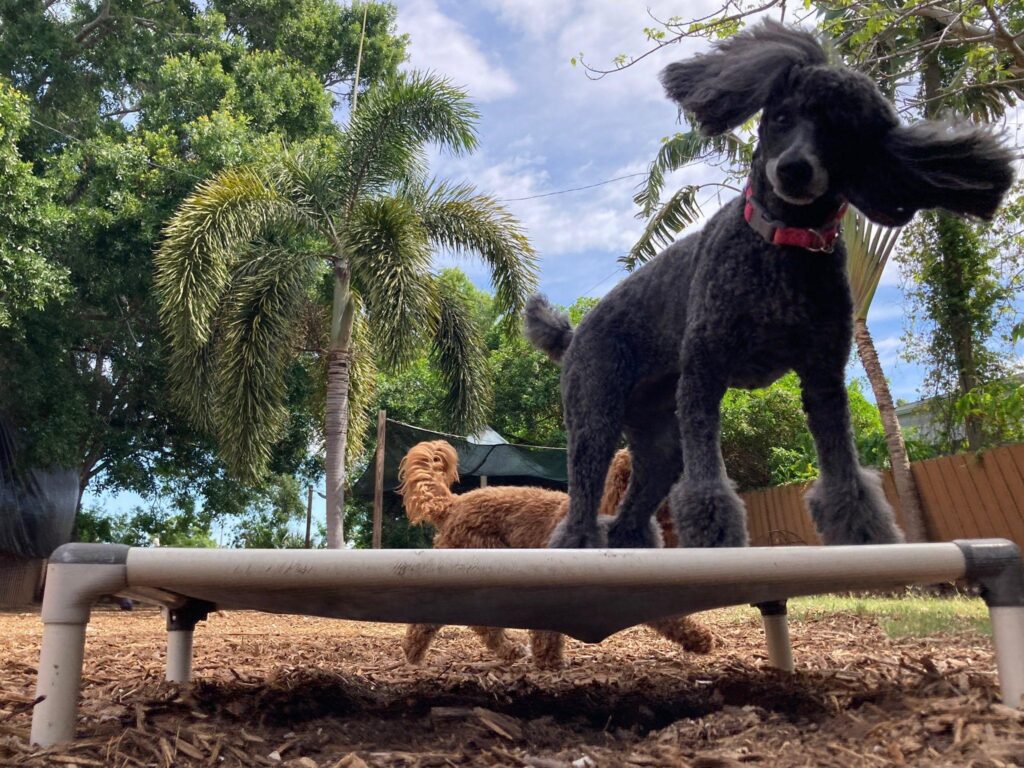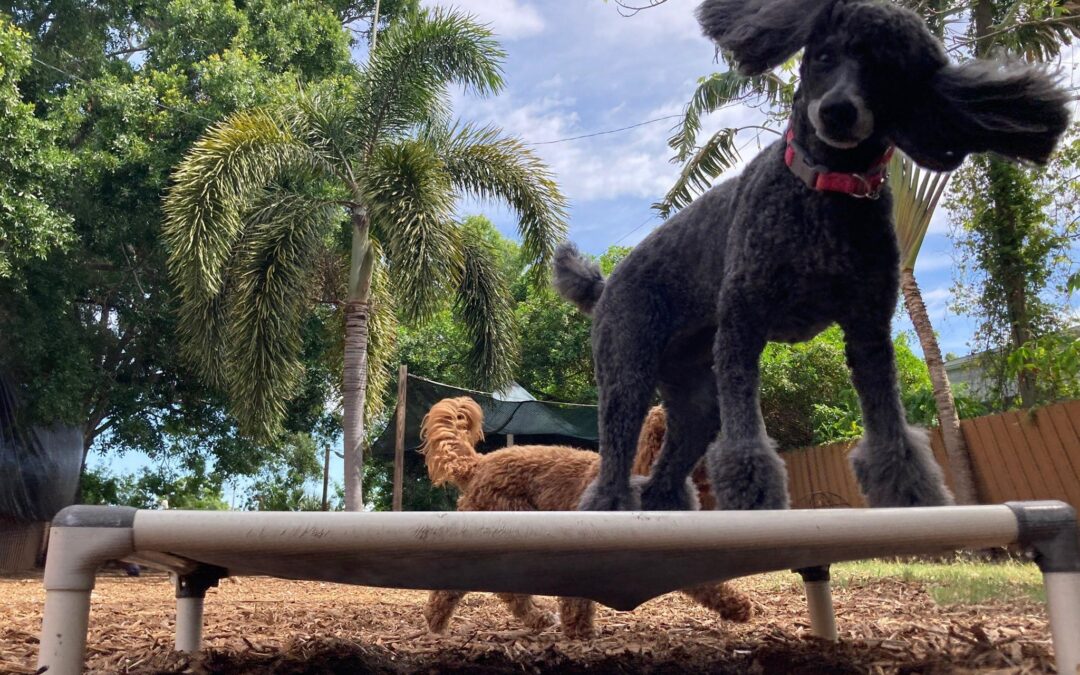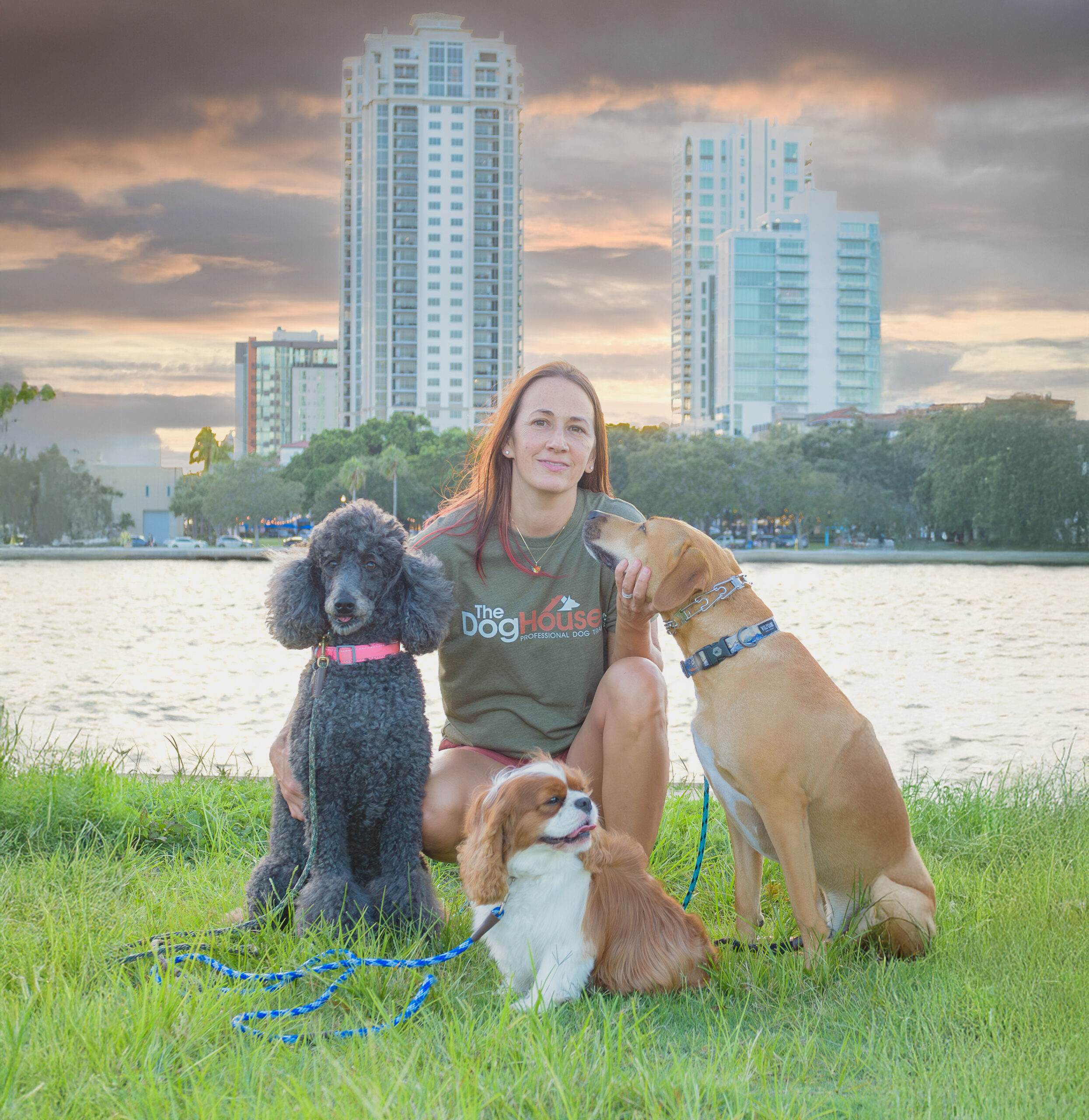
Nowadays, more board and train programs in the St. Petersburg area are being run from trainers’ homes instead of licensed facilities.
At first glance, this can seem like a win because your dog gets to stay in a home, not a kennel. Some owners hope this setup will make it easier for their dog to transition back into daily life.
But while the idea sounds comforting, it’s important to understand what’s actually happening behind the scenes, and how unlicensed in-home training may impact your dog’s care, safety, and results.
That’s why it’s important to ask the right questions and know what to watch for before choosing a Board and Train provider.
What to Know About In-Home Dog Training Programs in St. Pete
Don’t fall for buzzwords like “No stress home boarding” or “Training in the comfort of a home” to unknowingly compromise your dog’s overall well-being while away being trained.
As the owner of a professional training facility that has offered Full-Service Training Programs for nearly 20 years, I want to share my thoughts and experiences as more home-based programs become popular here in St. Pete.
My goal isn’t to criticize, but to help dog owners understand what to look for—so you can choose a training program that truly supports your dog’s safety, well-being, and long-term success.
Why Licensing Matters for Dog Boarding and Training
One of the biggest differences between home-based setups and licensed facilities is how they’re regulated behind closed doors.
St. Petersburg, Florida, requires a permit and proper zoning to board dogs. Most trainers offering boarding and training out of their homes do not meet these requirements. To confirm this, you can search the address where your dog will be staying.
As a client, it’s important to understand the licensing, zoning, and accountability that come with operating a facility with live animals. When your dog is staying in a licensed and regulated training facility, there are multiple people looking after them every day:
- Kennel workers
- Trainers
- Clients coming in for lessons or tours
Licensed facilities are also subject to unannounced inspections by Pinellas County Animal Services. There is no “behind the scenes,” and that should be more comforting than your dog being in someone’s house.
To keep your dog safe, animal control holds licensed facilities to high standards, including:
- Clean, sanitary conditions
- Limits on the number of dogs allowed at one time
- Proof that all dogs are up to date on vaccinations
These regulated protocols are in place to ensure your dog’s safety and health during their training or boarding stay.
The Problem with Unlicensed In-Home Dog Boarding in St. Petersburg
Many in-home trainers aren’t licensed to board dogs, and most residential neighborhoods in St. Petersburg aren’t zoned for that kind of care. According to the St. Petersburg city ordinance on animal limits, you are only allowed to have five adult dogs in a home.
Think of it in the context of a child going away to camp: Would you rather have them in a place with numerous camp counselors or staying at one counselor’s house?
Accountability creates safety when it comes to the care of our loved ones. And unfortunately, when kennels aren’t regulated, transparency is jeopardized.
Warning Signs: How to Spot Unsafe Dog Board and Train Programs
I have heard of trainers who offer Board and Train Programs, not allowing clients to take a tour of where their dogs will be staying. They say it’s their home and prefer to meet at parks to:
- Exchange the owner’s dog
- Perform the go-home lessons
This is not acceptable and should not be the standard in any case of getting your dog professionally trained.
Pictures and videos are not enough to ensure your dog is being cared for.
Businesses that operate like this ruin the reputation of other boards and training programs that follow the rules. There are plenty of great choices in trainers that:
- Have established facilities
- Fought for proper zoning
- Pay thousands a year for insurance and permits
- Offer tours and have an open door policy
A Note to Responsible and Permitted Home-Based Trainers
*Please understand that my intent is not to discredit the home trainers out there who have an open-door policy for clients to take tours of their homes or stop by anytime, as long as they have the proper licensing and zoning. I’m encouraging St Petersburg dog owners to do their research to keep the business of Board and Trains growing in the right direction.
In a world where transparency is a must, this field needs more regulations. This is not the standard, and clients need to be educated. The results from board and train programs done correctly and safely can have lifelong benefits for your dog and your family.
Licensed Dog Kennels in St. Pete: Local Options That Meet the Standard
Choosing a boarding or training program is a big decision. To help, we’ve included other licensed options in the area alongside what makes The Doghouse, LLC different.
Several kennels in St. Pete are zoned, licensed, and insured, including:
Happy Camper Doggie Day Camp and Sleepover
Still ask your questions, take a tour, and get references, no matter where you choose, to ensure that any dog boarding or training kennel you select will best fit you and your dog.
If you’re looking for a licensed, experienced training facility you can trust, we’re here to help.
Reach out anytime to schedule a visit or talk through what kind of program might work best for your dog.
Want to learn more before reaching out?
- Read: What First-Time Dog Owners Can Expect at The Doghouse’s Obedience Training
- Or, hear what returning families are saying about us in: Traveling Again – What Repeat Clients Are Saying About The Dog House



